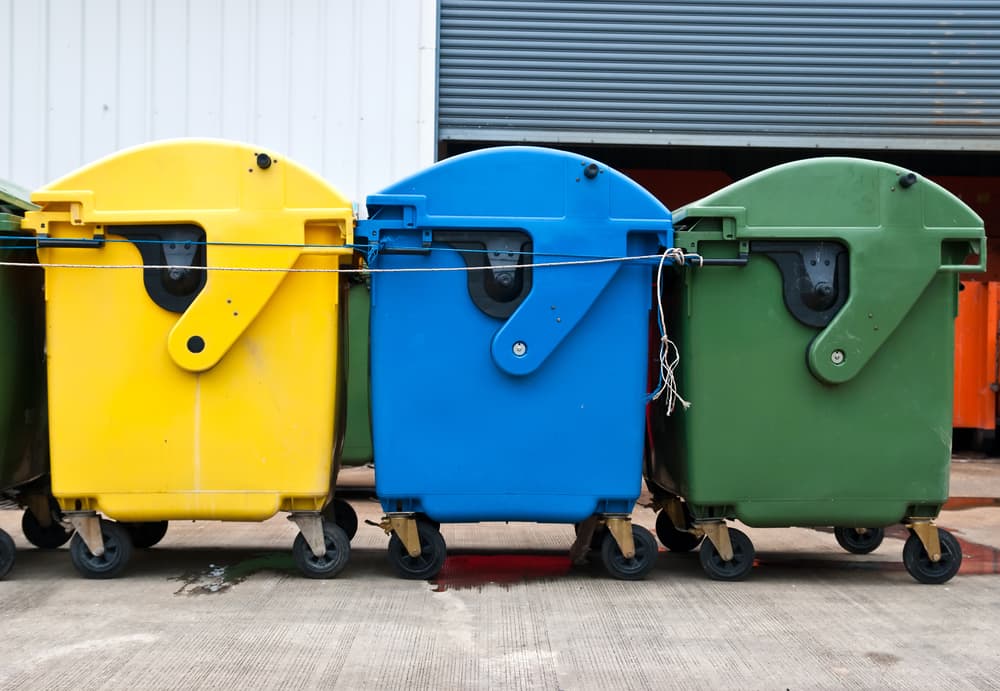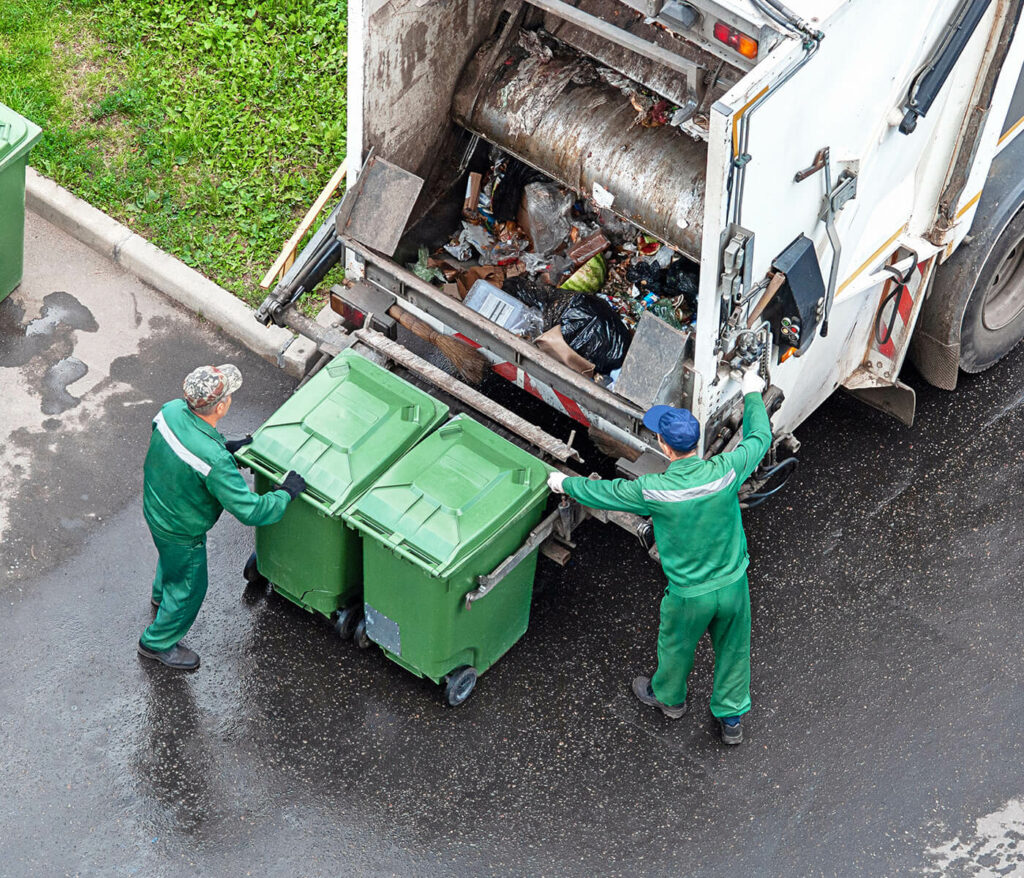May 9th, 2024

Food waste is a critical issue in the food industry, impacting our homes, businesses, and the environment, yet it often remains unnoticed. The big, burning question is: How much food is actually wasted in the UK every year?
You’ve landed in the right place. At NRC we have decades of experience in waste management and have seen first-hand the implications of wasted food.
In this blog we’ll walk you through the facts and statistics of food waste in the UK. We see hundreds of thousands of tonnes of food waste every year, so we’re on a mission to provide insight into why it happens and what we can do to prevent it.
Key Points
- UK Food Waste – The Statistics
- The Cost of Food Waste in The UK
- Why Is So Much Food Wasted in The UK?
- How To Reduce Food Waste In The UK
- Food Waste Regulation Changes in England
UK Food Waste – The Statistics
In the UK, the tale of food waste is a complex one, woven through various stages of our food chain. From the fields to our forks, an astonishing amount of food never reaches our plates – but how and why does this happen?
Food Manufacturing Process
This stage involves the production and packaging of food. During these processes, inevitable inefficiencies and quality control measures lead to a significant amount of food waste. Misshapen fruits or vegetables and production overruns often end up as waste, contributing to a notable portion of the overall food waste in the UK.
Retail and Hospitality Sectors
Supermarkets, restaurants, and hotels play their part in the food waste story. Unsold items, over-prepared food, and customer leftovers contribute to waste. While efforts are being made to reduce this through better inventory management, it remains a key area of concern.
Household Food Waste – The Biggest Contributors
Our homes stand as the largest contributors to food waste in the UK, responsible for a staggering 70% of the total waste, with the average household throwing away nearly 2kg of food every day (The Eco Experts). This includes expired food, plate scrapings, and the discarding of food that is still edible but perhaps past its ‘best before’ date.
The numbers paint a vivid picture, and what’s more disheartening is that a large portion of the food we throw away is edible. Annually, the UK sees about 6.4 million tonnes of edible food waste.
This isn’t just about the food itself, but also about the wasted resources – water, labour and energy – that went into producing it. It’s clear that every sector, from manufacturing to our homes, plays a critical role in this issue.
The Cost of Food Waste in The UK
When we talk about food waste in the UK, we’re not just discussing discarded food; we’re delving into a multifaceted issue with wide-reaching economic and environmental implications. Let’s break down the cost of this waste and its associated impacts.
The Economic Toll
The UK spends a staggering amount of money on food waste. This includes not only the value of the wasted food itself but also the costs incurred in its production, transportation, and disposal. Every morsel of food thrown away represents not just a loss of the product but also a loss of resources and money invested in bringing it to the table. At the end of this, the amount of edible food wasted costs the UK about £19 billion annually.
Greenhouse Gas Emissions
When food is disposed of in landfills, it decomposes anaerobically, releasing methane, a potent greenhouse gas. The carbon footprint of this waste is immense and far more harmful to our planet than carbon dioxide, contributing significantly to climate change.
Why Is So Much Food Wasted in The UK?
Understanding why so much food is wasted in the UK every year is a key part of developing strategies to combat the problem. While the reasons can be diverse, depending on the sector, some of the main culprits include:
- By-products and Expired Products – In the journey from farm to fork, by-products from food processing and expired products contribute significantly to waste. This includes items that expire before being sold or consumed.
- Leftovers and Unsold Items – Leftover food at home and unsold items in stores are substantial contributors. This could be due to over-purchasing, improper storage, or simply forgetting about food items until they’re no longer usable.
- Cosmetic Waste – One of the more shocking facts is that 40% of fruit and vegetable waste in the UK is due to cosmetic reasons. Perfectly edible produce is often discarded simply because it doesn’t meet certain aesthetic standards. Throwing away these ‘imperfect foods’ highlights the need for a change in perceptions and practices regarding food appearance.
How To Reduce Food Waste In The UK
Reducing food waste in the UK is not just a necessity; it’s an opportunity for positive change. A variety of strategies can be implemented across different sectors to make a significant impact. These include:
- Monitoring food waste
- Reducing portion sizes (particularly in restaurants)
- Repurposing leftovers
- Storing food correctly
- Buying and eating food that’s in season
For many sectors, especially restaurants, reducing food waste isn’t just environmentally responsible; it’s economically sensible. By cutting down on waste, they can significantly reduce purchasing costs and improve their bottom line.
Food Waste Regulation Changes in England
In 2025, England will introduce new waste disposal regulations (GOV.UK), as part of the Simpler Recycling initiative. Taking effect from March 31 2025, all businesses in England will have to separate their waste for recycling.
If your business generates more than 5kg of food waste per week, you will have to set up a dedicated disposal system. This means new bins and more collections. Need help preparing your company? Get in touch with our experts and we will work to give you a head start.
Manage Your Business Food Waste With NRC
The issue of food waste is clearly wide-reaching, and the journey towards reducing food waste is one of awareness, innovation, and collective action. At NRC, we understand the complexities and the urgency of this issue, especially in the business sector.
Food waste is not just an environmental issue; it’s a business one. By addressing it, companies can not only contribute to a more sustainable future but also save money and work more efficiently. At NRC, we believe that every business has the potential to make a difference in this fight against food waste.
Of course, there will always be an amount of unavoidable food waste. When this happens, we will be there with our reliable food waste collections and a promise to dispose of your food waste in a sustainable way.
Let’s work together to turn this challenge into an opportunity. Reach out to NRC today, and let us help you make your food waste management practices more efficient, responsible, and sustainable.





